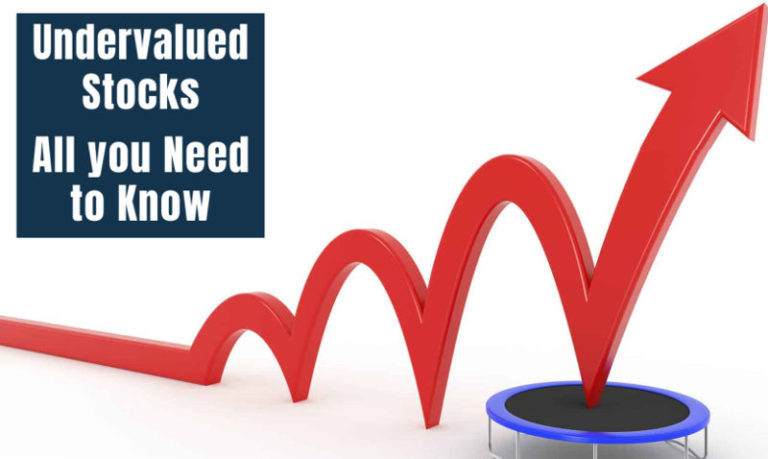In the vast ocean of the stock market, investors are constantly searching for undervalued gems that hold the promise of substantial returns. An undervalued stock is a stock that is trading below its intrinsic value, often due to market inefficiencies or a lack of recognition. Identifying and investing in such stocks can be a lucrative strategy, but it requires a keen eye and a thorough understanding of the underlying principles. This article will delve into the nature of undervalued stocks, their key characteristics, and the various methods used to identify them. By unraveling the secrets of undervaluation, investors can unlock a world of investment opportunities and potentially reap significant profits.

Image: finance.yahoo.com
Defining Undervalued Stocks: Unveiling Hidden Value
The concept of undervaluation is central to the identification of stocks with the potential for outperformance. Simply put, an undervalued stock is a stock that is trading at a lower price than its intrinsic value. This disparity can arise for several reasons, such as market fluctuations, temporary setbacks in the company’s performance, or a lack of awareness about the company’s true potential. Undervalued stocks often represent excellent buying opportunities, as they provide investors with the chance to acquire shares in a company that is worth more than its current market price.
Characteristics of Undervalued Stocks: Signs of Potential Bargains
Identifying undervalued stocks requires a discerning eye and a thorough analysis of various financial metrics. Some of the key characteristics that are often associated with undervalued stocks include:
- Low Price-to-Earnings (P/E) Ratio: The P/E ratio measures the price of a stock relative to its earnings per share. A low P/E ratio can indicate that the stock is undervalued compared to its peers or to its own historical P/E ratios.
- High Dividend Yield: Dividend yield represents the annual dividend payment divided by the current stock price. A high dividend yield can be a sign of undervalued stock, as it suggests that the company is distributing a significant portion of its earnings to shareholders.
- Strong Balance Sheet: A strong balance sheet with low debt and ample cash flow can indicate that the company is financially sound and has the resources to weather economic downturns.
- Future Growth Potential: Undervalued stocks often have strong growth prospects that are not yet reflected in their current market price. This growth potential can stem from new product offerings, expanding markets, or other factors that are likely to drive future earnings growth.
Methods for Identifying Undervalued Stocks: Unearthing Market Gems
There are several methods that investors can use to identify undervalued stocks, each with its own advantages and limitations. Some of the most common methods include:
Fundamental Analysis: involves studying a company’s financial statements, including its balance sheet, income statement, and cash flow statement. By analyzing these statements, investors can assess the company’s financial health, growth prospects, and overall intrinsic value.
Technical Analysis: utilizes price charts and historical trading data to identify potential trading opportunities. Technical analysts believe that past price movements can provide insights into future price movements, and they use various technical indicators and chart patterns to predict future stock behavior.
Value Investing: is a long-term investment approach that focuses on identifying stocks that are trading below their intrinsic value. Value investors seek companies with strong fundamentals, predictable earnings, and a wide margin of safety. They typically hold these stocks for extended periods, allowing time for the market to recognize the company’s true worth.

Image: theglobalcoverage.com
What Is Undervalued Stock
Conclusion: The Allure of Undervalued Stocks
Undervalued stocks can be a goldmine for investors who possess the knowledge and patience to identify them. By carefully analyzing financial metrics, monitoring market trends, and conducting thorough research, investors can uncover hidden gems that offer significant upside potential. However, it’s crucial to remember that investing in undervalued stocks also carries inherent risks. Investors should always approach investing with caution and conduct due diligence before making any investment decisions. By mastering the art of identifying undervalued stocks, investors can position themselves to reap the rewards of market inefficiencies and unlock the path to long-term investment success.







